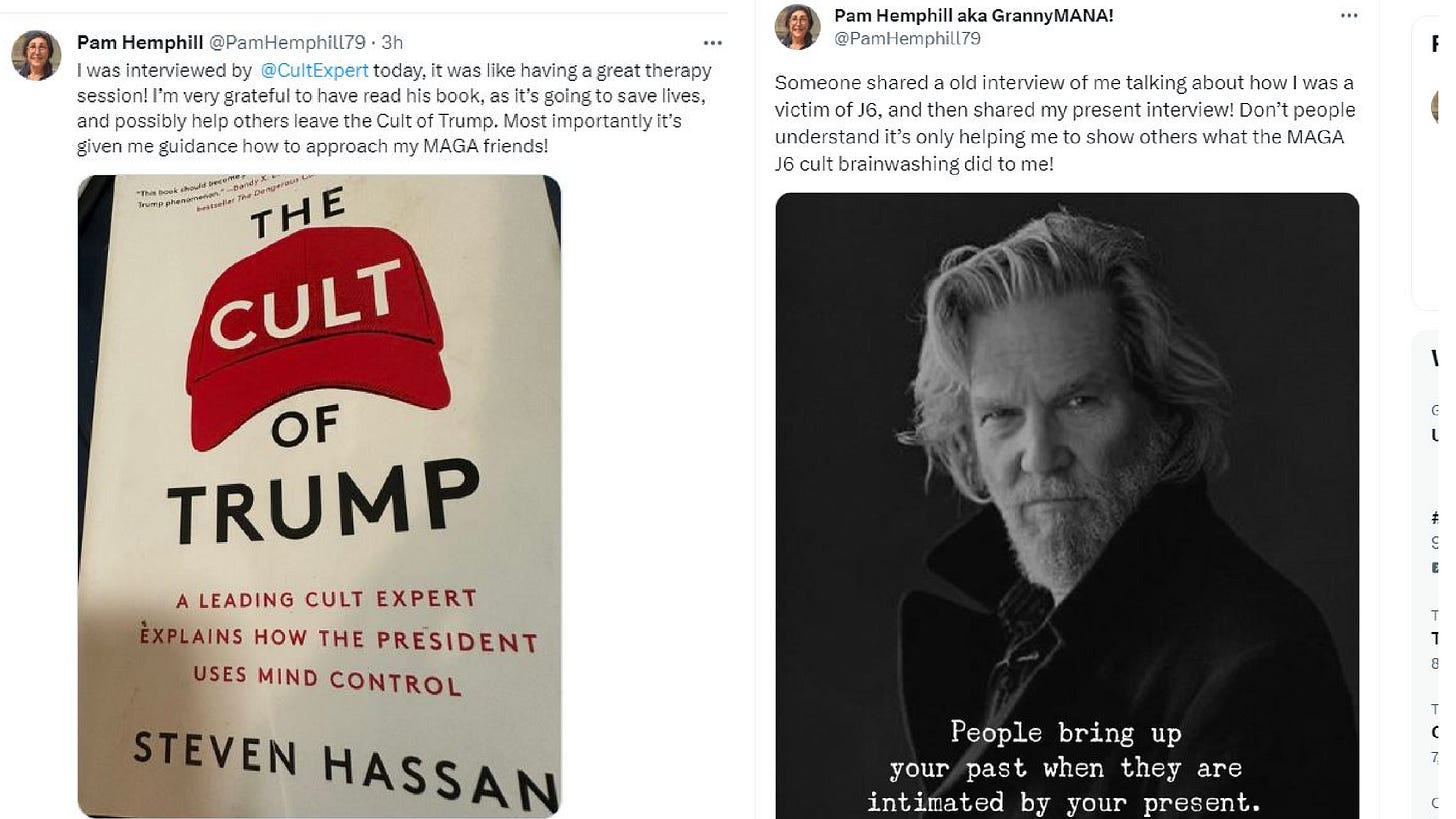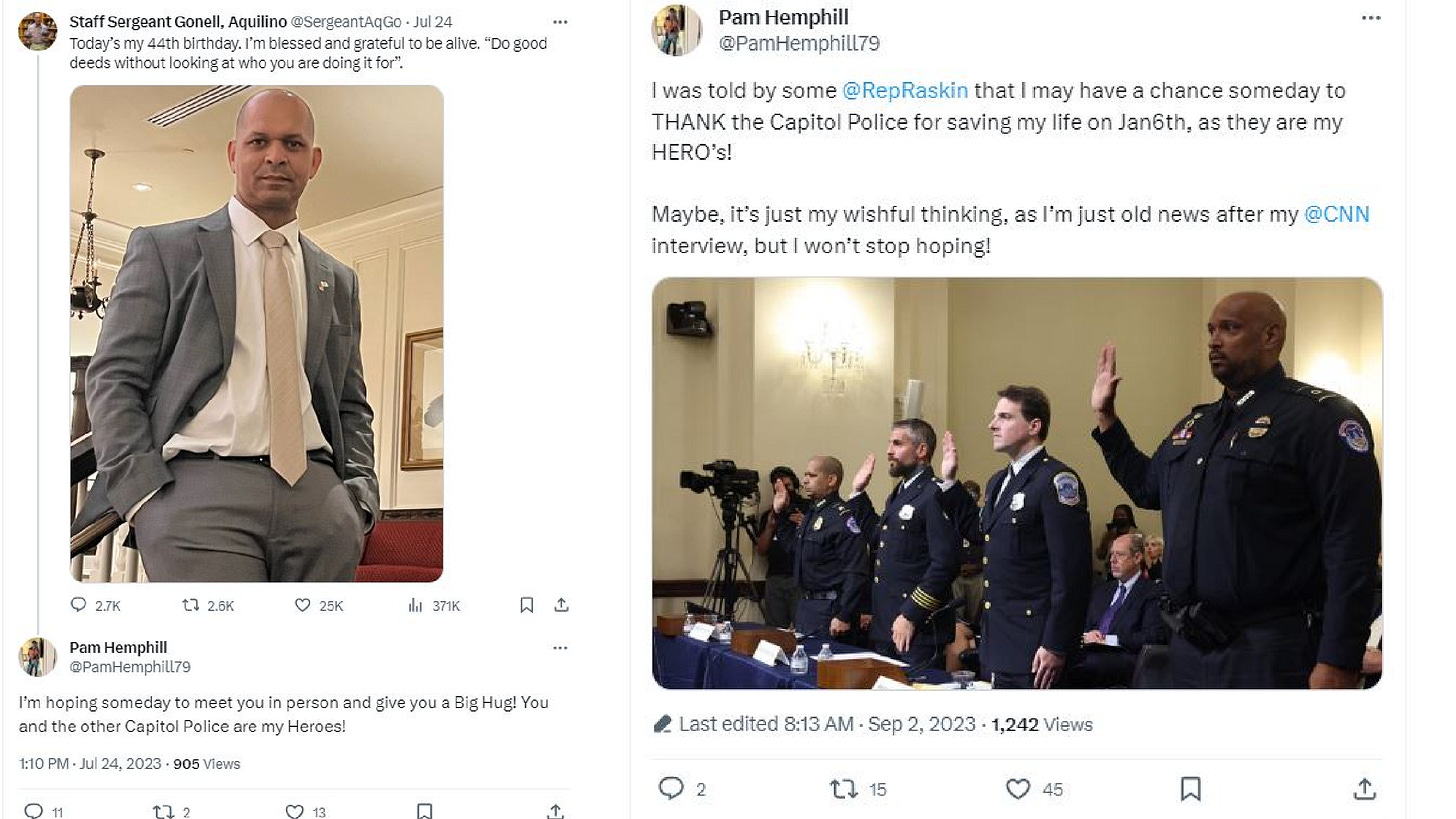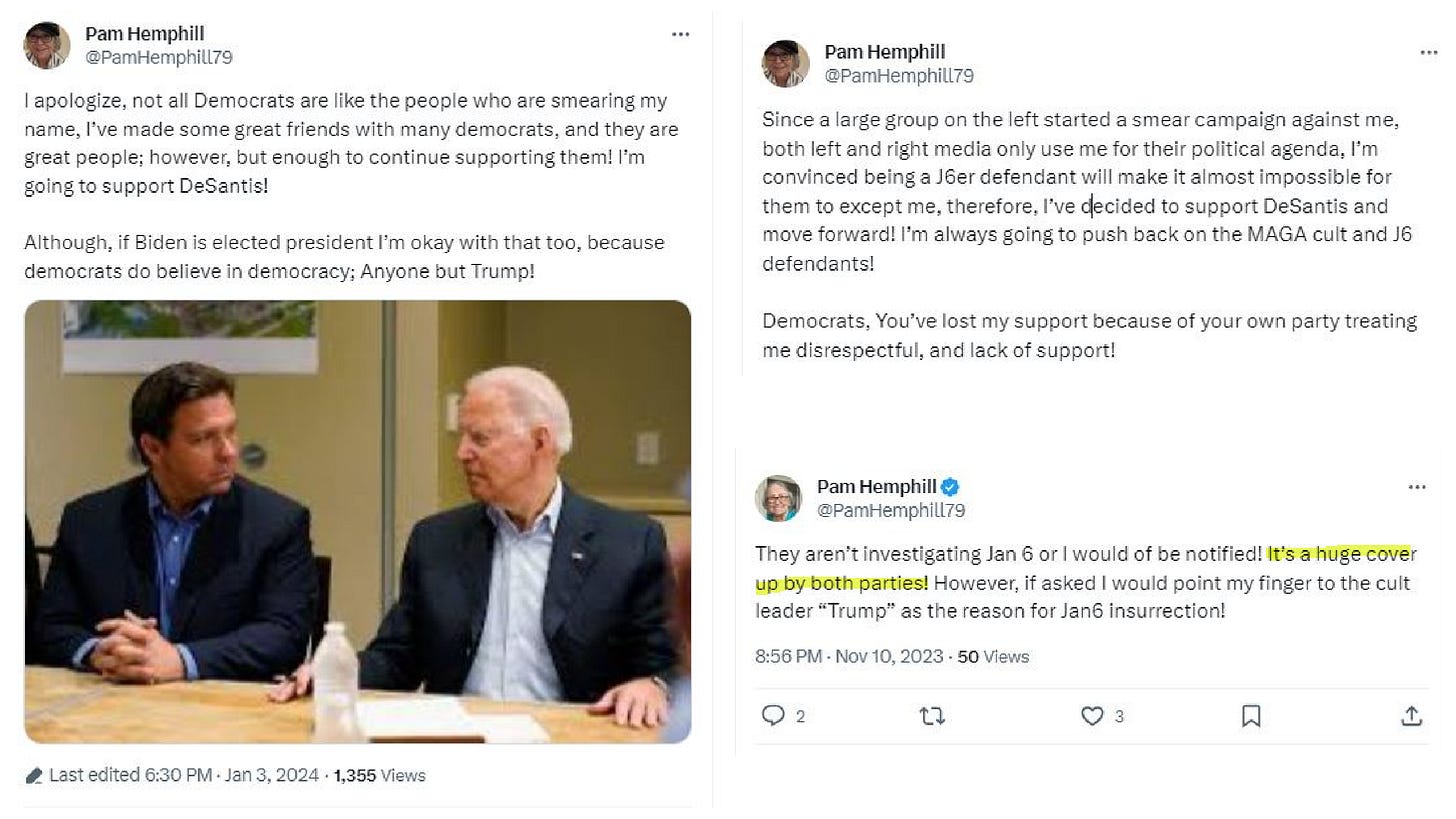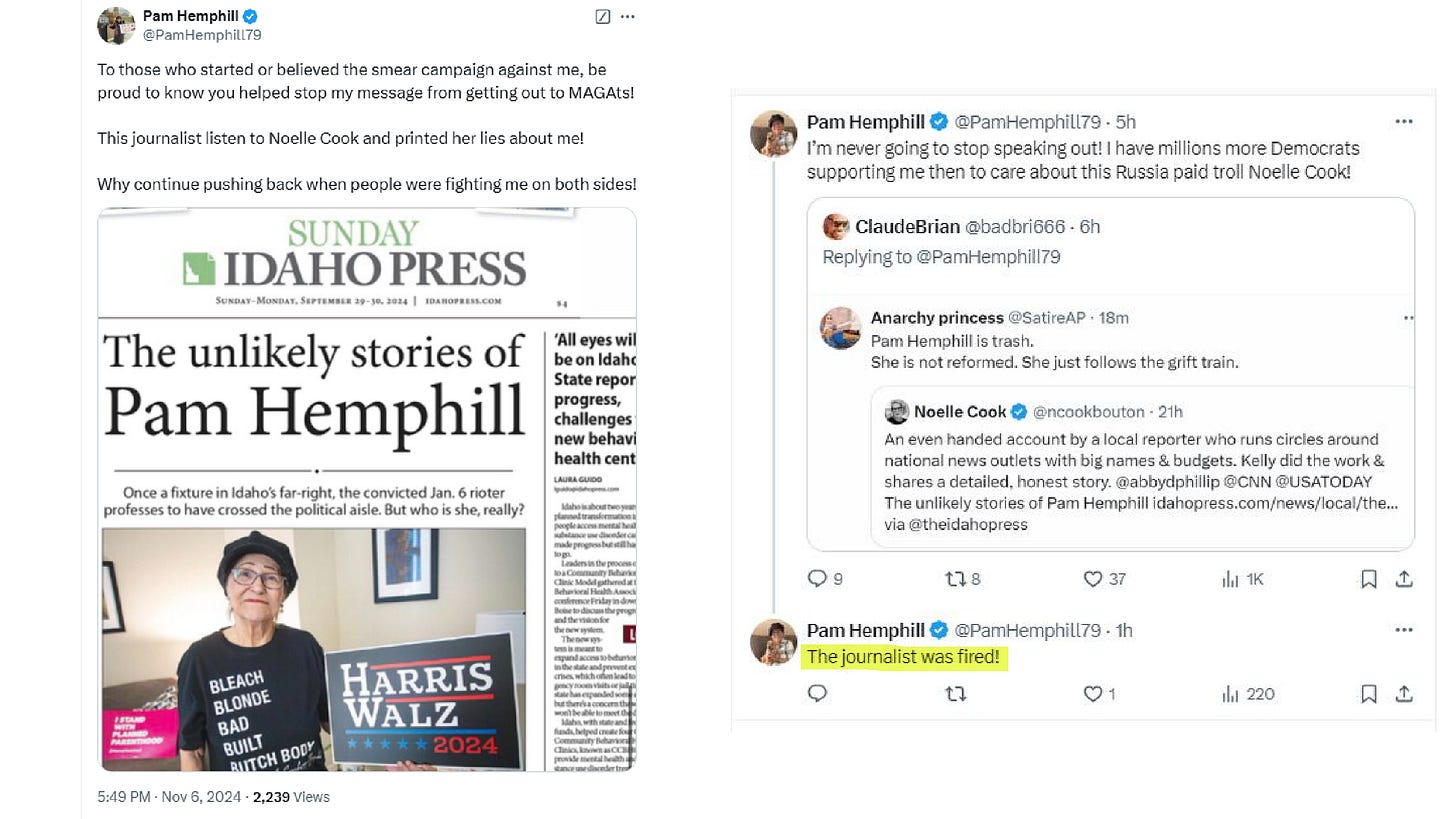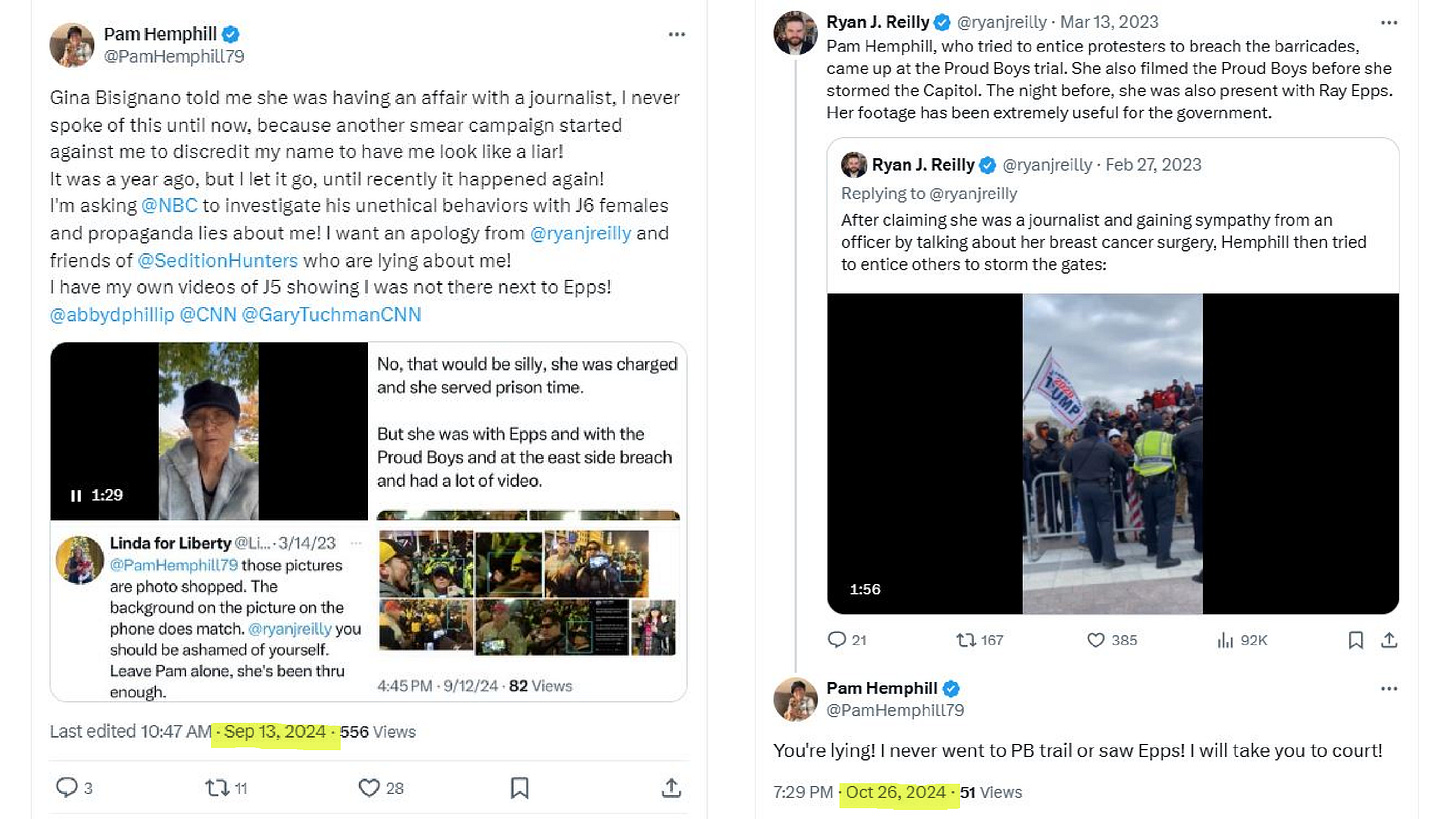My criticism of “MAGA Granny,” Pam Hemphill, was initially directed at legacy media for platforming someone more comfortable with lies than truth. In an era defined by disinformation, amplifying a figure who exploits public perception for attention and clout—while spreading malicious falsehoods—is not just irresponsible journalism; it’s complicity.
If you’re taking Hemphill’s word at face value, ask yourself why you’re so invested in promoting someone with a documented history of blatant dishonesty.
Hemphill’s platform on X (formerly Twitter) surged in July 2023 after CNN showcased her as the “MAGA Granny” who had disavowed Trump. The media eagerly embraced the narrative of an elderly woman “bamboozled” by Trump, experiencing a dramatic epiphany. Liberal “experts,” influencers, and podcast hosts joined the chorus, amplifying her tale of overnight redemption—a story that conveniently absolved her of personal responsibility.
Thriving on attention, Hemphill milked her platform for validation. But as the media spotlight faded, so did her relevance. By the end of 2023, she was reduced to declaring herself the only “J6er” to oppose Trump, demanding hugs from Capitol police, and tagging “important” people for engagement.
Hemphill’s antics escalated. She demanded Congress enter her letter into the January 6 committee record and invite her to read it aloud. When ignored, she pivoted, blaming “both sides” for January 6. She briefly endorsed DeSantis—until a follower pointed out his racism, prompting a quick retraction. For Hemphill, beliefs aren’t ideological; they’re dictated by popularity.
In late September, The Idaho Press featured her on its Sunday cover. The article, informed by researchers and activists, painted a more grounded portrait than CNN’s fantasy. Hemphill lashed out, falsely claiming reporter Kelly Holm was fired for “writing lies.” Holm wasn’t fired. Months later, Hemphill granted Holm another interview, theatrically announcing she wouldn’t accept a pardon—a “bold” declaration for a retiree who’d already served her sentence and paid restitution.
Hemphill’s pattern of falsehoods continued. When NBC journalist Ryan J. Reilly shared footage of her near Ray Epps—a figure central to January 6 conspiracy theories—she retaliated with a vicious lie, accusing him of having an affair with a January 6 defendant and demanding his firing. This is her playbook: play the victim, feed her followers lies, and let them attack on her behalf. Legacy media fuels this cycle.
Her decades-long rebranding—YouTube “healing coach”, far-right “citizen journalist,” “MAGA Granny”—is an opportunistic pursuit of fame. Her relentless drive for attention warps authenticity, turning her into a caricature and eroding credibility. Hemphill’s desperation isn’t unique—but her calculated manipulation makes her a perfect emblem of everything wrong with the media’s obsession with redemption arcs.




